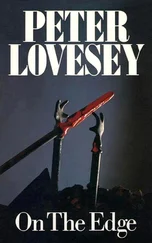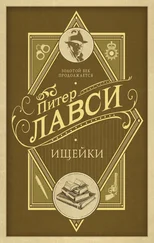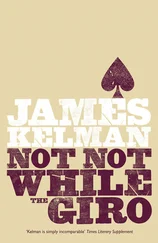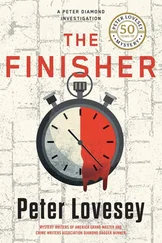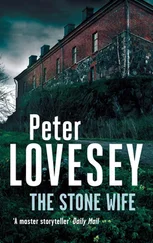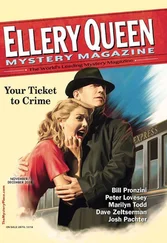I was so pleased with my detective work that I showed Alix the list. Somewhat to my surprise, she laughed. “Oh, Bertie, what will you do now — travel the district on a bicycle keeping watch on all these houses?”
“That isn’t the object,” I explained. “If one of them goes up in flames tomorrow night, I shall know for certain that my theory is correct. The arsonist selects the houses from The Times .”
“And then you can make another list next week,” said Alix with a lamentable lack of sensitivity.
“What else do you propose?” said I chillingly.
“I make no claim to be a detective, but I would look for a motive, my dear.”
“It’s all very fine to talk in such terms,” I protested, “but why would anyone put a match to a house? To see a damned good fire. Believe it or not, there are people who derive a morbid pleasure from watching a property go up in flames.”
“Oh, I believe it, Bertie.”
“They are known as pyromaniacs.”
She regarded me steadily. “Yes.”
“Then what is the use of looking for a motive?”
“There may be a more practical motive.”
“I doubt it,” said I.
But later, in bed — my own bed — I paid Alix’s last observation the compliment of considering it at more length. Suppose there was a practical motive. Why set light to a building if it isn’t for the undoubted satisfaction of seeing it ablaze? It wasn’t as if some insurance swindle was involved in either incident, so far as I was aware. And there was no attempt to put anyone in personal danger; in fact, the reverse was true. The arsonist appeared to have gone to some trouble to select an empty house and so avoid an accident.
In the small hours of the morning, a theory began to form in my brain, a brilliant theory that I was perfectly capable of putting to the test. It encompassed both motive and opportunity. I could hardly wait for Friday evening to learn whether the arsonist would strike again.
He did not.
I had to wait another full week and compile another list of properties from The Times before this drama came to its conclusion.
Two weeks to the day since the Villiers Street fire, I took high tea instead of supper and arrived at Chandos Street Fire Station sharp at 7. Captain Shaw had not yet appeared and nor had the Duke of Sutherland, so after changing into my fireman’s uniform I had a game of billiards with Superintendent Flanagan and beat him soundly. Then I put my proposition to him.
“If there’s a fire this evening, I’d like to have command of one of the escapes — with your consent, of course.”
He pricked up his eyebrows. Generally, I’m content to take a subordinate role in fire-fighting. “Is there a reason for this, sir?”
Damned impertinence. I ignored the remark. “You have no shortage of escapes?”
“Oh, we have more than we ever use.”
“Mine can be surplus to requirements, then.” I added cuttingly, “I wouldn’t want to hamper the work of the London Fire Brigade through inexperience.”
He had the grace to mumble, “That’s unthinkable, Your Royal Highness.”
“Very good, then. And Flanagan...”
“Sir?”
“We won’t mention it to the others.”
“As you wish, sir.”
George Sutherland arrived soon after, and restored my joie de vivre in no time. He’s an old friend and a marvellous eccentric who happens to own more land than any other man in the kingdom. The Shah of Persia (another notable eccentric) once advised me that Sutherland was too grand a subject and I’d be well advised to have his head off when I come to the throne. I never miss an opportunity to remind George of this.
The alarm came at twenty minutes past eight. A house at the Leicester Square end of Coventry Street was well alight. Marvellous! It was on my list. The owner had died ten days ago, according to The Times .
I told nobody the significance of the address at this juncture. I was playing a cautious hand, by Jove. I made sure that I was last in the rush to the fire-fighting vehicles. I watched two engines and an escape being whipped out, bells jangling. Flanagan and George Sutherland were aboard the first to leave.
My team of two firemen waited deferentially for me to step up to the driver’s box, and I took my time, making certain that everyone else was out of the yard and would be clear of Chandos Street before we followed.
“All ready, Your Highness?” the driver asked.
I nodded. “Except that we shall not be going to the fire. Kindly drive to Eagle Street.”
“ Eagle Street, sir.”
“Eagle Street, the other side of Holborn.”
“I know it, sir, but I didn’t know there was a fire there.”
“Wait and see,” I said cryptically.
We set off northwards up St Martin’s Lane. People are pretty considerate when they see a fire appliance coming and we rattled through to High Holborn at a good trot.
“Has the engine gone ahead, sir?” the driver enquired.
“An engine won’t be required,” I told him. Perhaps I should explain that an escape, such as the vehicle I had commandeered, is simply a cart with extending ladders. The fire engine is the vehicle that provides the steam for the pumps. It is unusual, to say the least, for an escape to attend a fire in the absence of an engine. You can imagine the look on the face of my driver. The look became a study in disbelief when we turned into Eagle Street and there was no engine and no fire. Not even a puff of smoke.
“Shall I turn about, sir?” he asked.
“No,” I told him. “Draw up outside number 39.”
“That’s Mr Flanagan’s address,” he informed me. “Our Superintendent.”
“I’m aware of that. Just do as I say.”
We trundled to a stop. There was no sign of a fire at 39, Eagle Street. Nobody was at the windows shrieking, or on the roof.
“Raise the main ladder,” I ordered. “And make as little sound as possible.”
The firemen exchanged mystified glances. Fortunately, they didn’t dare defy me. They cranked the ladder upwards.
“That will do,” I presently said. “Now can you swing it closer to that large window at the top?”
I made sure that the top of the ladder didn’t touch the window-sill, but it was pretty close. “Is it stable?” I asked. “In that case, I’m going up.”
Watched by an interested collection of bystanders, I mounted the ladder briskly, as firemen do. I have an excellent head for heights and this was only three storeys high, so I went up almost without pause. I drew level with the window and looked in. This being a September evening, there was still a good light and the curtains had not been drawn. What I saw may offend some readers; it would have offended me, had I not been prepared. Indeed, I might well have fallen off the ladder.
This was the Flanagans’ bedroom. There was a large double bed, occupied by the personable Dymphna Flanagan and a man who couldn’t possibly have been Flanagan, because Flanagan was fighting a fire in Coventry Street. Without wishing to be indelicate, I have to say that Dymphna and her visitor clearly weren’t discussing Irish politics. They were naked as cuckoos. I should state here that I’m no prude, and I’m no Peeping Tom either. The reason I remained staring into the room for two more minutes is that I needed to be certain of the man’s identity. I was waiting for him to turn his head. When he did, our eyes met. He saw me on my ladder and I saw Engineer Locke, Flanagan’s deputy.
I had fully anticipated this, of course. Friday — every other Friday — was Henry Locke’s day off. He had been setting unoccupied houses alight once a fortnight in order to make sure that Flanagan was usefully occupied for the evening. And I had deduced it.
Читать дальше
![Питер Ловси Do Not Exceed the Stated Dose [Stories] обложка книги](/books/437200/piter-lovsi-do-not-exceed-the-stated-dose-stories-cover.webp)
